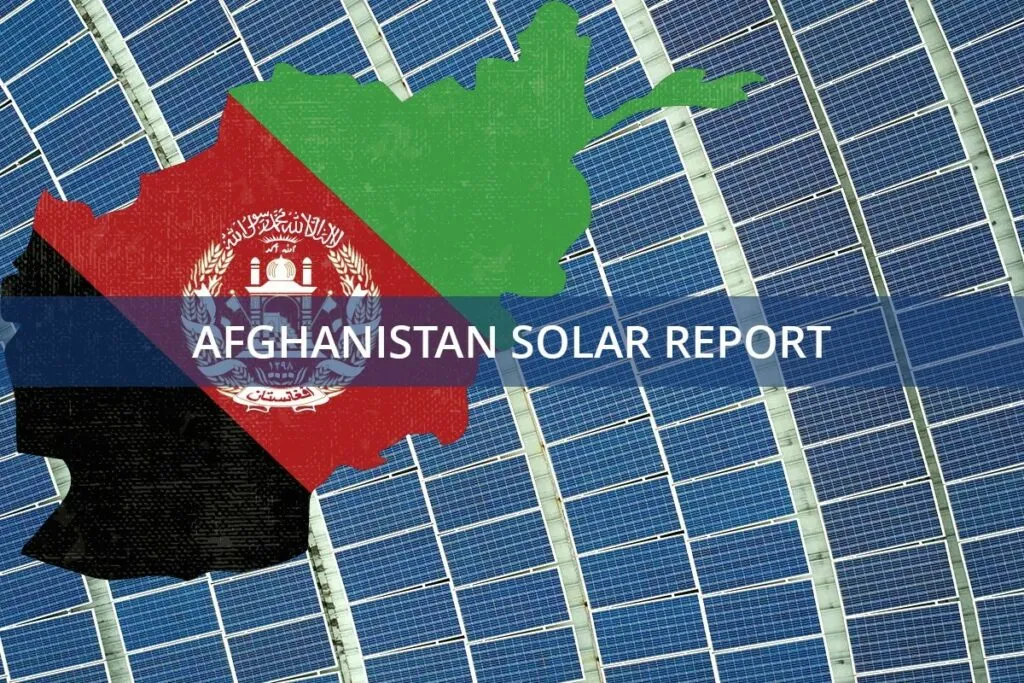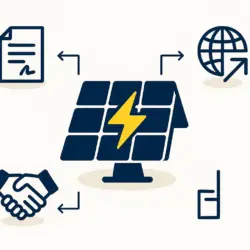The Afghanistan Hospital in Mazar-e-Sharif has installed a 100 kW solar power system, marking a major advancement in renewable energy for healthcare facilities in Afghanistan. This initiative, funded by Turkish philanthropist Zeki Ishaqzai, significantly improves the hospital’s energy independence and reliability, providing a powerful blueprint for sustainable development in critical sectors.
Afghanistan Solar Power System: A Game-Changer for Healthcare
The 100 kW solar power system is expected to generate more than 400 kWh of electricity daily, ensuring a steady, uninterrupted power supply for the hospital’s most critical functions. Before this transition, facilities like this often relied on costly and unreliable diesel generators. The shift to solar eliminates not only the noise and emissions from diesel but also the constant need for fuel, which can be a logistical and financial burden.
This reliable energy source will power essential equipment like operating room lighting and diagnostic machines, maintain temperature-controlled storage for vital medicines and vaccines, and even support neonatal warmers for the most vulnerable patients. By guaranteeing uninterrupted operations, the hospital can dramatically improve patient care and safety. Understanding the basics of solar panel manufacturing reveals how this technology has become robust enough for such critical applications. With solar power, the hospital has made its operations more sustainable, resilient, and cost-effective.
Solar Power’s Impact on Healthcare in Afghanistan
The Afghanistan Hospital’s solar installation is a pioneering project, but it is not an isolated one. It is part of a growing movement to secure energy for the country’s healthcare sector. For example, a similar 100 kW solar system with battery storage was installed at the Urgun District Hospital through a UNDP project, providing 24-hour electricity and ending the facility’s dependence on a generator that consumed 2,000 liters of fuel monthly.
By reducing reliance on the national grid, these systems help alleviate pressure on the country’s fragile energy infrastructure. This is particularly crucial in a nation where frequent power shortages can have life-threatening consequences for healthcare delivery. This move towards energy self-sufficiency for critical infrastructure mirrors the goals of homeowners and businesses in countries like Germany, who also seek to reduce reliance on grid instability and contribute to a cleaner environment. The solar systems also align with global sustainable development goals, helping to reduce Afghanistan’s carbon footprint one facility at a time.
Renewable Energy in Afghanistan: A Growing Trend with Solar Power
Afghanistan’s renewable energy sector is gradually expanding, with solar power leading the charge. The country’s geographical location provides abundant sunlight, making it an ideal candidate for solar energy projects. The technology itself is a marvel of modern engineering, from the sourcing of solar panel raw materials to the intricate solar panel manufacturing process that turns them into efficient energy producers.
The success of projects like the one in Mazar-e-Sharif is likely to inspire further investment in renewable energy across Afghanistan. By showcasing the practical benefits—lower operational expenses and improved reliability—the hospital sets a powerful precedent. This shift is not only environmentally beneficial but also economically advantageous, as it stabilizes energy costs, a key factor detailed in any solar panel manufacturing plant cost breakdown.
Future of Afghanistan Solar Power
The Afghanistan Hospital’s solar power system represents a significant step forward in the country’s energy landscape. As more institutions recognize the profound benefits of renewable energy, the adoption of solar power is expected to accelerate. This trend will not only enhance energy security for critical services but also support Afghanistan’s broader development goals by fostering a more sustainable and resilient infrastructure.
In the coming years, Afghanistan is likely to see a continued rise in renewable energy projects. As the country builds its capacity for sustainable energy production, perhaps even exploring the use of modern solar panel manufacturing machines locally, it will be better positioned to address its energy challenges and support the needs of its people.
If you are inspired by how solar technology is transforming lives and want to deepen your own understanding of this powerful industry, consider exploring our free e-course to learn more.



